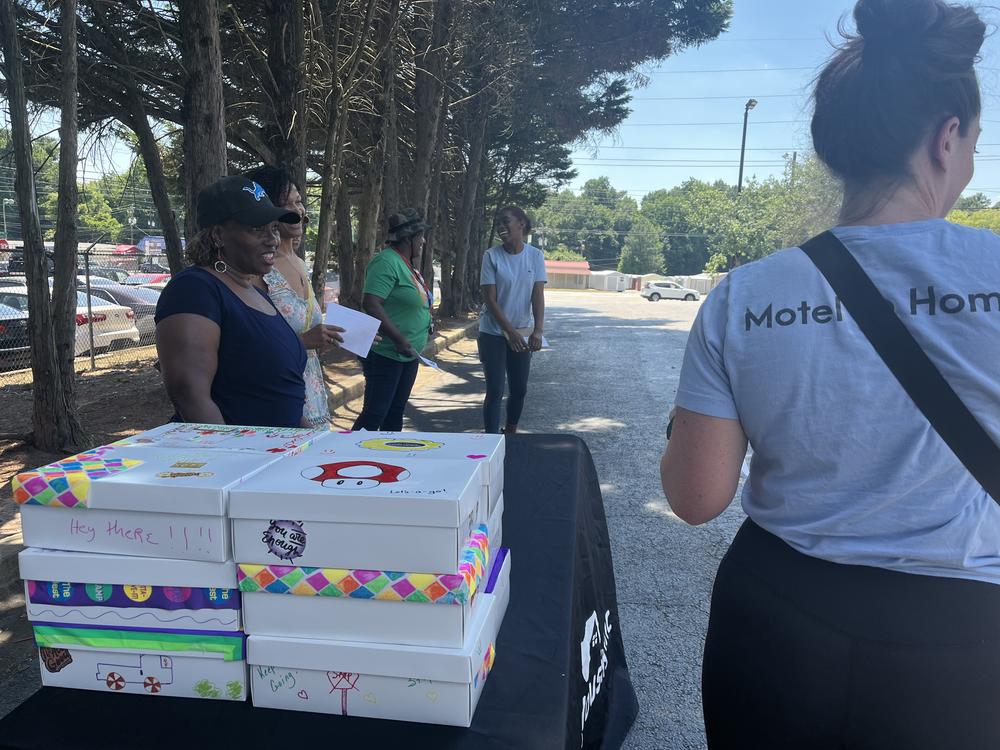
Caption
Volunteers with Frontline Housing hand out hygiene kits full of supplies at motels in South Atlanta as part of their monthly outreach services.
Credit: Amanda Andrews / GPB News
|Updated: August 28, 2024 10:34 AM
LISTEN: Working people living in motels are considered a "hidden homeless" population. An alliance of nonprofits are working to move 1,000 affected families in Atlanta to stable housing by next summer. GPB's Amanda Andrews reports.

Volunteers with Frontline Housing hand out hygiene kits full of supplies at motels in South Atlanta as part of their monthly outreach services.
The Southern Poverty Law Center estimates at least 30,000 people live in motels in the Atlanta metro area. Now, a group of nonprofits in the city are working to address this “hidden homelessness” that many working families face.
Frontline Housing is one of six groups doing outreach and providing financial support with the goal of moving 1,000 families from motels to stable housing by June of 2025.
About once a month, Frontline Housing and their volunteers set up shop at a motel called the Live in Lodge in Jonesboro. Frontline Executive Director Mary Grace King makes sure each volunteer walking around the motel has their arms full of hand-decorated boxes filled with supplies.
“So it's just like hygiene stuff: deodorant, soap, some shampoo, feminine hygiene,” King said,
The toiletries aren’t the main focus; they're a tool to accomplish a larger goal.
King feels like the management at the Live in Lodge and other sites aren’t always happy to see them.
“Sometimes the hotels don't really want us here because it can be seen as just like taking their business,” King said. “But when you have volunteers and like stuff to give away, it's a little bit easier to kind of disguise that we're trying to take their business a little bit.”
What King and others are really trying to do for motel residents is provide them a way out. So far, Frontline has helped about 150 mostly South Atlanta families find stable, permanent housing.
King said the biggest obstacles are usually financial.
“So the families want to move,” she said. “The families want more stable housing, but you have to make a certain amount to get approved for housing. You have to have a certain amount of credit.”
And not just credit: It’s all the fees that come with moving into an apartment, such as a security deposit.
Motel to Home Program participant Rasheeda Rahmaan James said her family couldn’t afford more payments.
“It was tough because we had a storage unit that we were paying, I think, $500 every month for,” she said. “In addition to paying $460 a week for a hotel. Plus, we had a car note at the time.”
Their housing costs were about $2,300 a month. Those bills, plus the cost of transportation, left Rahmaan James with no way to save — and her three sons considered legally homeless by the state of Georgia.
King said working families like Rahmaan James' living in motels make too much money for government subsidized housing programs.
“They’re not considered like chronically homeless or street homeless,” she said. “They are paying their own motel bill. And sometimes that can disqualify them for other services.”
But once Rahmaan James was connected with Frontline, she got the financial boost she needed to transition to an apartment.
“The $1,000 that was contributed to our move in was definitely welcomed and appreciated,” she said.
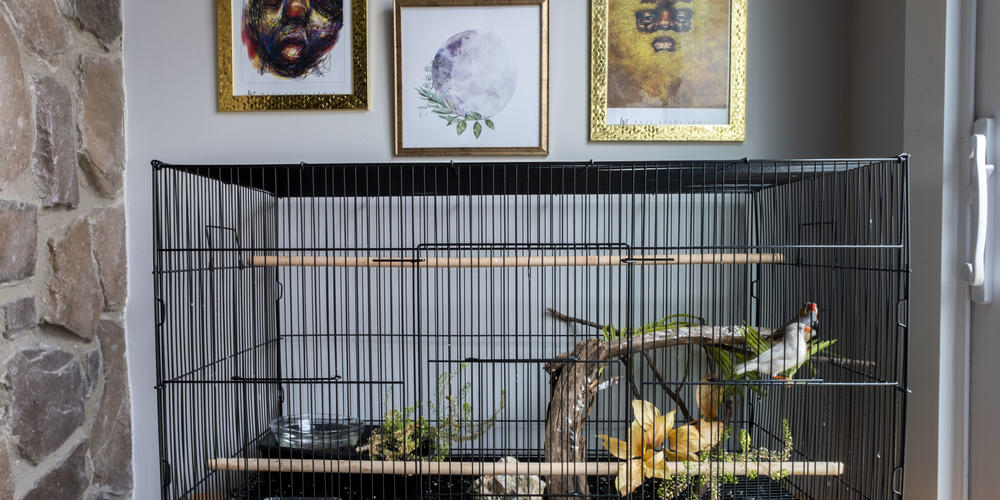
Rahmaan James' family recently acquired two zebra finches, shown here perched in the family's new home.
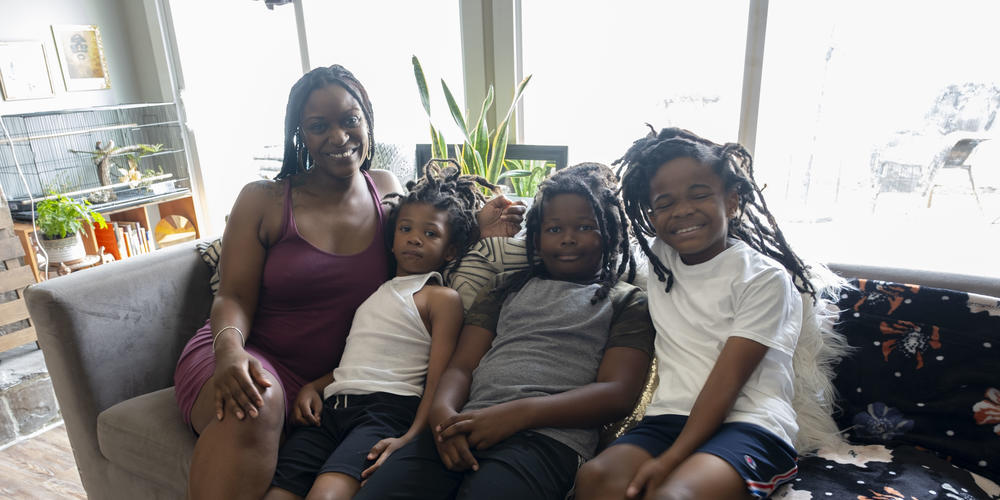
Rasheeda Rahmaan James's sons pose with her for a portrait.
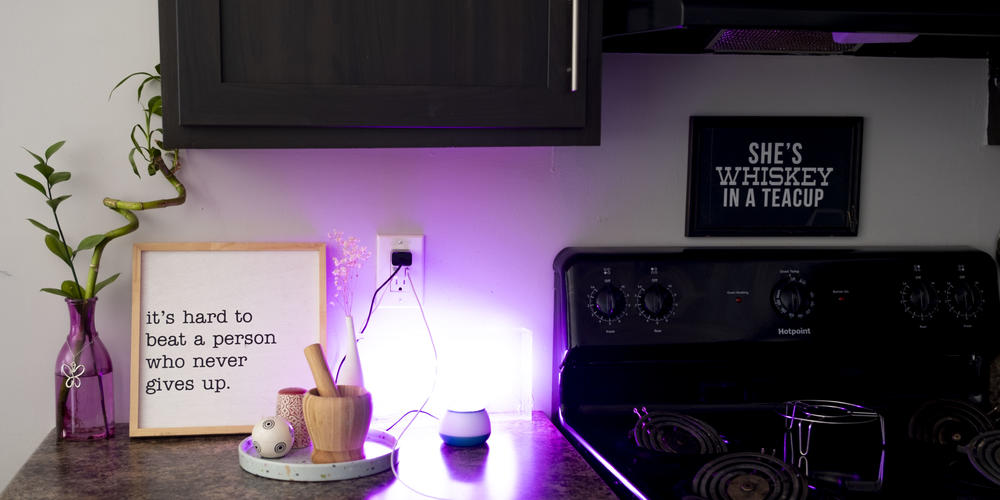
Motel to Home Program participant Rasheeda Rahmaan James' new kitchen includes a sign which reads, "It's hard to beat a person who never gives up."
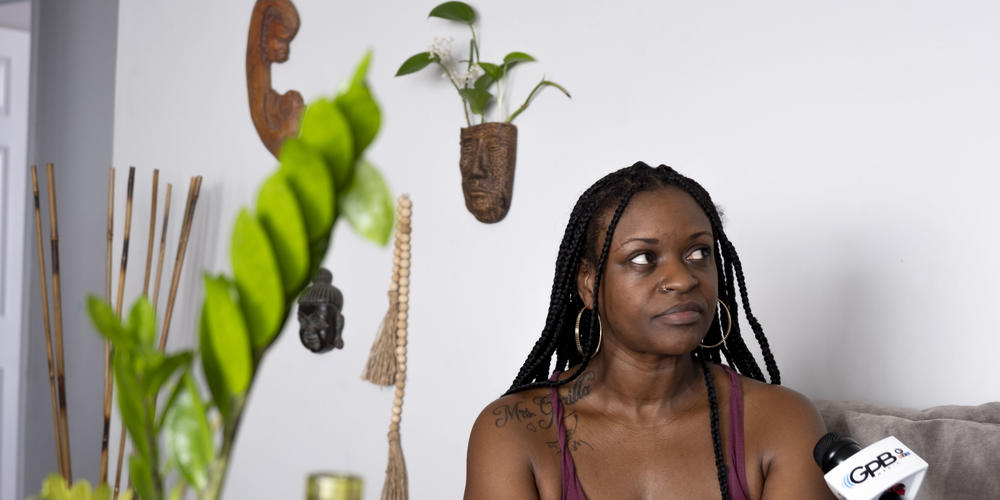
Rasheeda Rahmaan James speaks with GPB's Amanda Andrews.
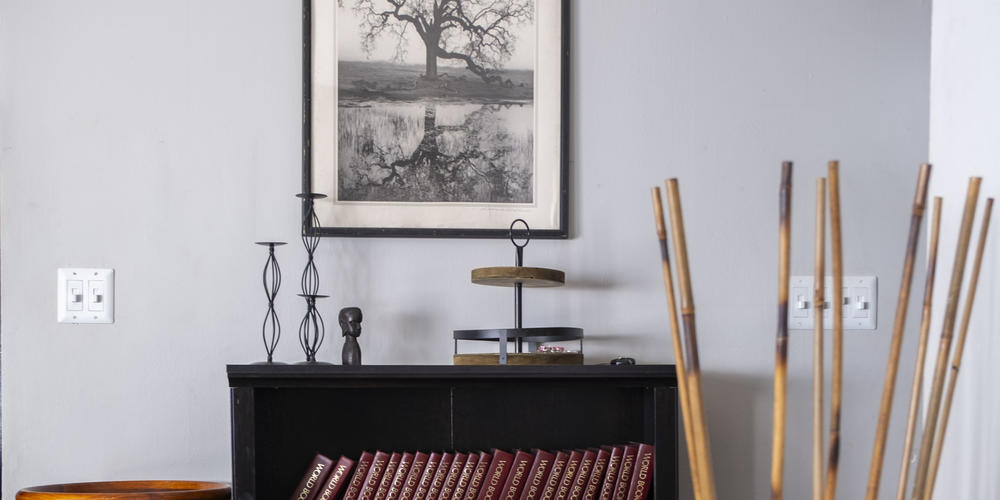
A bookshelf in Rahmaan James' new home.

Rasheeda Rahmaan James's sons film her as she speaks with GPB's Amanda Andrews.'
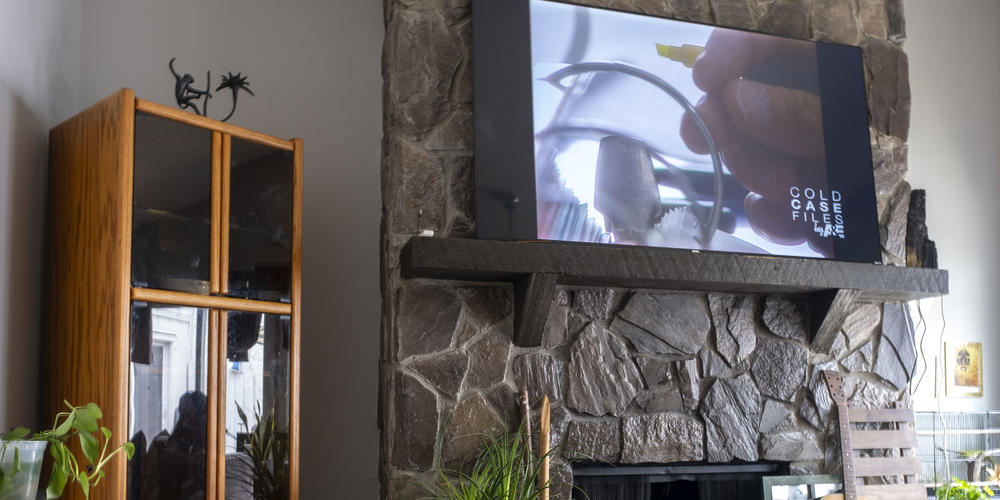
Part of the living room in Rahmaan James' new home.
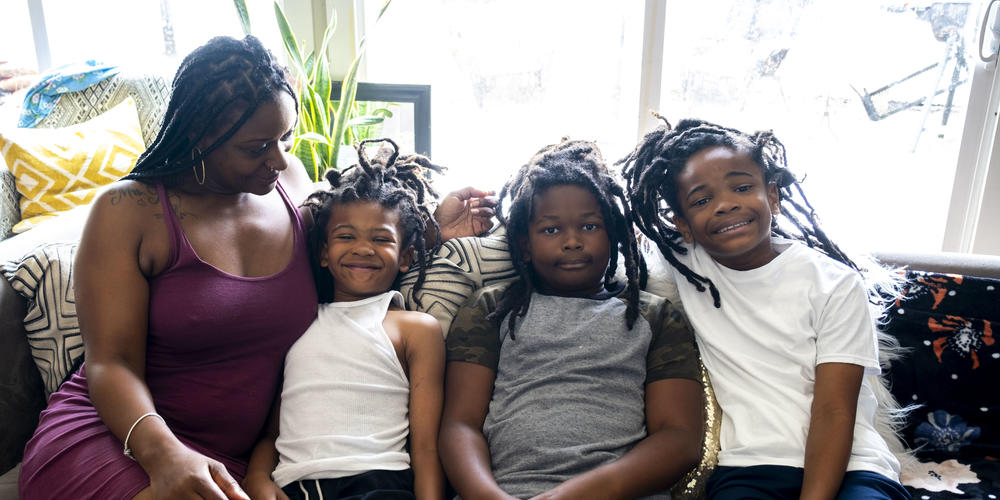
Rasheeda Rahmaan James's sons pose with her for a portrait.








The money Rahmaan James received was enough for an apartment security deposit, but Frontline doesn’t stop there. Once a family is moved into a new apartment, King said they get further cash assistance.
“So it's a cash transfer program where we give families cash directly on a debit card, help them open a savings account, and they save throughout six months,” she said. “But we're giving them the dollars to save.”
Rahmaan James and her family moved into their three-bed, two-bath apartment home in January and now their monthly housing costs are actually less than back in the motel. She said the budget is still tight sometimes, but leaving the motel has been great for her children.
“I mean, I love it, and I miss it, but I love that my kids — I don't have to, like, quiet them because we're not in the sixth floor anymore to make them “Shhh! No stomping,” you know? When their Legos, one or two, end up outside of the door in the hallway, I don't feel bad about it.”
The Motel to Home alliance has placed nearly 400 families with 10 months left to reach their goal.